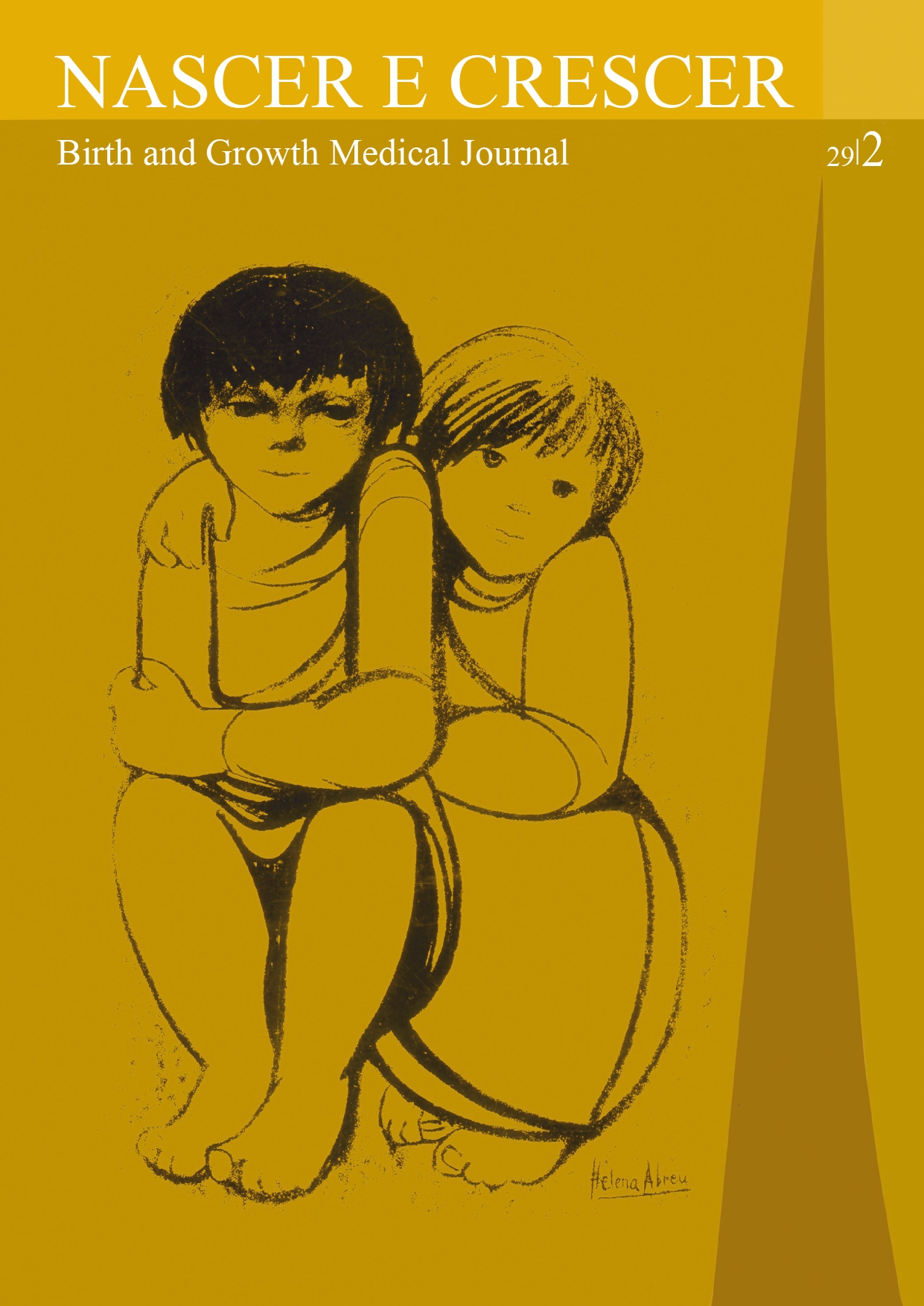Prevention of sexual abuse in preschoolers - teacher’s knowledge and attitudes
DOI:
https://doi.org/10.25753/BirthGrowthMJ.v29.i2.16660Keywords:
child sexual abuse, preschool age, preschool teachers, preventionAbstract
Introduction: Child sexual abuse (CSA) is a global public health problem across different culture and socioeconomic strata. Teachers have a privileged role in prevention programs and the approach is feasible and effective in preschoolers. The aim of this study was to characterize preschool teachers’ knowledge, attitudes, and training about CSA prevention.
Methods: A non-experimental, exploratory, cross-sectional study was conducted in Leiria, Portugal, comprising 47 preschool teachers. Data was retrieved through a questionnaire developed by study authors.
Results: Most preschool teachers had no CSA prevention training. About half of inquired teachers considered their knowledge about CSA prevention as reasonable. However, 12.8% classified it as poor, mainly teachers with less practice years (50% vs 69.6% of teachers with ≥30 practice years who classified their knowledge as reasonable, p=0.03). Most participants agreed that CSA prevention should be part of preschool curriculum, particularly older teachers (92% vs 77%, p=0.03). Most respondents considered adjusting these concepts to preschoolers challenging for implementation of prevention programs, 72.4% considered that some topics were not suitable for discussion with preschool children, and 82.9% considered that their approach was not well accepted by parents or caregivers.
Discussion: Study results evidenced several difficulties and limited training of preschool teachers in CSA prevention. Encouragingly, most teachers showed a positive attitude towards participating in CSA training education and including this topic in preschool curriculum. This study emphasizes the importance of teachers’ education in this subject through implementation of training programs.
Downloads
References
Beier KM. Preventing Child Sexual Abuse —The Prevention Project Dunkelfeld. J Sex Med 2018; 15:1065-6.
CitakTunc G, Gorak G, Ozyazicioglu N, Ak B, Isil O, Vural P. Preventing Child Sexual Abuse: Body Safety Training for Young Children in Turkey. J Child Sex Abus 2018; 27:347-64.
Enyedy A, Tsikouras P, Csorba R. Medical and Legal Aspects of Child Sexual Abuse: A Population-Based Study in a Hungarian County. Int J Environ Res Public Health 2018; 15:pii: E701. doi: 10.3390/ijerph15040701.
Zhang W, Chen J, Feng Y, Li J, Liu C, Zhao X. Evaluation of a Sexual Abuse Prevention Education for Chinese Preschoolers. Research on Social Work Practice 2014; 24:428-36.
Zhang W, Chen J, Liu F. Preventing Child Sexual Abuse Early: Preschool Teachers’ Knowledge, Attitudes, and Their Training Education in China. Sage Open 2015; 1-8. doi: 10.1177/2158244015571187.
Goldman JDG, Torrisi-Steele G. Education about child sexual abuse on interactive multimedia CD-Rom for undergraduate teachers. Health Education Journal 2004; 63:127-44.
Topping KJ, Barron IG. School-Based Child Sexual Abuse Prevention Programs: A Review of Effectiveness. Review of Educational Research 2009; 79:431-63.
Scherrer A, Van Ballegooij W. Combating sexual abuse of children. Directive 2011/93/EU. European Parliamentary Research Service, Brussels, EU; 2017.
Márquez-Flores MM, Márquez-Hernández VV, Granados-Gámez G. Teachers’ Knowledge and Beliefs About Child Sexual Abuse. J Child Sex Abus 2016; 25:538–55.
Almeida AN, Ramos V, Almeida HN, Escobar CG, Garcia C. Analysis of contextual variables in the evaluation of child abuse in the pediatric emergency setting. J Pediatr (Rio J) 2017; 93:374-81.
Sethi D, Bellis M, Hughes K, Gilbert R, Mitis F, Galea G. European report on preventing child maltreatment. The regional Office for Europe of World Health Organization, Copenhagan, Denmark; 2013.
Scholes L, Jones C, Stieler-Hunt C, Rolfe B, Pozzebon K. The Teachers’ Role in Child Sexual Abuse Prevention Programs: Implications for Teacher Education. Australian Journal of Teacher Education 2012; 37:104-31.
Martyniuk H, Dworkin E. Child Sexual Abuse Prevention: Programs For Children. National Sexual Violence Resource Center Enola, PA; 2011.
Pitts, C. Child sexual abuse prevention programs for pre-schoolers: A synthesis of current evidence. Royal Commission into Institutional Responses to Child Sexual Abuse, Sydney; 2015.
Wurtele SK, Owens JS. Teaching Personal Safety Skills To Young Children: An Investigation Of Age And Gender Across Five Studies. Child Abuse & Neglect. 1997; 21:805-14.
Bergström H, Eidevald C, Westberg-Broström A. Child sexual abuse at preschools – a research review of a complex issue for preschool professionals. Early Child Development and Care. 2016; 186:1520-8.
Kenny MC. Web-based training in child maltreatment for future mandated reporters. Child Abuse & Neglect. 2007; 31:671–8.
McKee BE, Dillenburger K. Child abuse and neglect: Training needs of student teachers. International Journal of Educational Research. 2009; 48:320–30.
Downloads
Published
How to Cite
Issue
Section
License
Copyright and Authors' Rights
All articles published in Nascer e Crescer - Birth and Growth Medical Journal are Open Access and comply with the requirements of funding agencies or academic institutions. For use by third parties, Nascer e Crescer - Birth and Growth Medical Journal adheres to the terms of the Creative Commons License "Attribution - Non-Commercial Use (CC-BY-NC)".
It is the author's responsibility to obtain permission to reproduce figures, tables, etc. from other publications.
Authors must submit a Conflict of Interest statement and an Authorship Form with the submission of the article. An e-mail will be sent to the corresponding author confirming receipt of the manuscript.
Authors are permitted to make their articles available in repositories at their home institutions, provided that they always indicate where the articles were published and adhere to the terms of the Creative Commons license.


